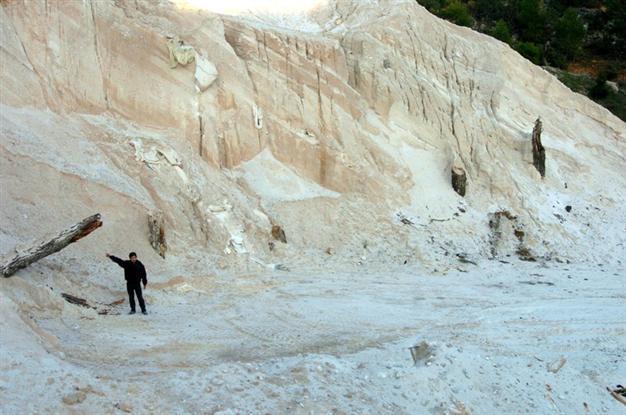Acidic lakes threaten Kaz Mountains’ rich habitat
ISTANBUL

Mining around the Kaz Mountains has caused serious damages to the environment, as this recent picture by Fatih Dalhal from Doğan News Agency shows.
Acidic lakes are being formed in the Kaz Mountain range, mainly in areas where intensive mining is being conducted, new research has shown.
The İda Mountains, the old mythological name for the range along the northern Aegean coast of Turkey, offer some of the richest flora in Turkey and are especially known for their water springs.
But according to research led by Çanakkale 18 Mart University, companies mostly extracting lignite coal in the Çan district have irreparably damaged nature in the area.
Researchers observed that the topography of the region had been altered after years of the extraction of lignite, which contains sulphur, causing the formation of acidic lakes.
“Big holes were created in these areas whose natural structure and topography have been altered due to human intervention. Artificial lakes have been formed following the extraction of lignite coal as runoff has drained into those holes,” said the report, quoted by daily Evrensel.
The waters not only contain sulphuric acid, but also high levels of metals such as aluminum, iron, manganese and nickel.
Experts said the acidic lakes had caused the death of many fish after polluting the surface waters.
The report also quotes a study from Turkey’s Mineral Research and Exploration (MTA) organization that indicates that farmland near Halilağa village in Çan contained high levels of arsenic as a consequence of the acidic lakes.
Turkey has been strongly criticized for its lack of regulations and monitoring of mining activities across the country, particularly near protected areas such as the Kaz Mountains.
Çan, which borders the Kaz Mountain National Park, is also home to a huge coal plant.
